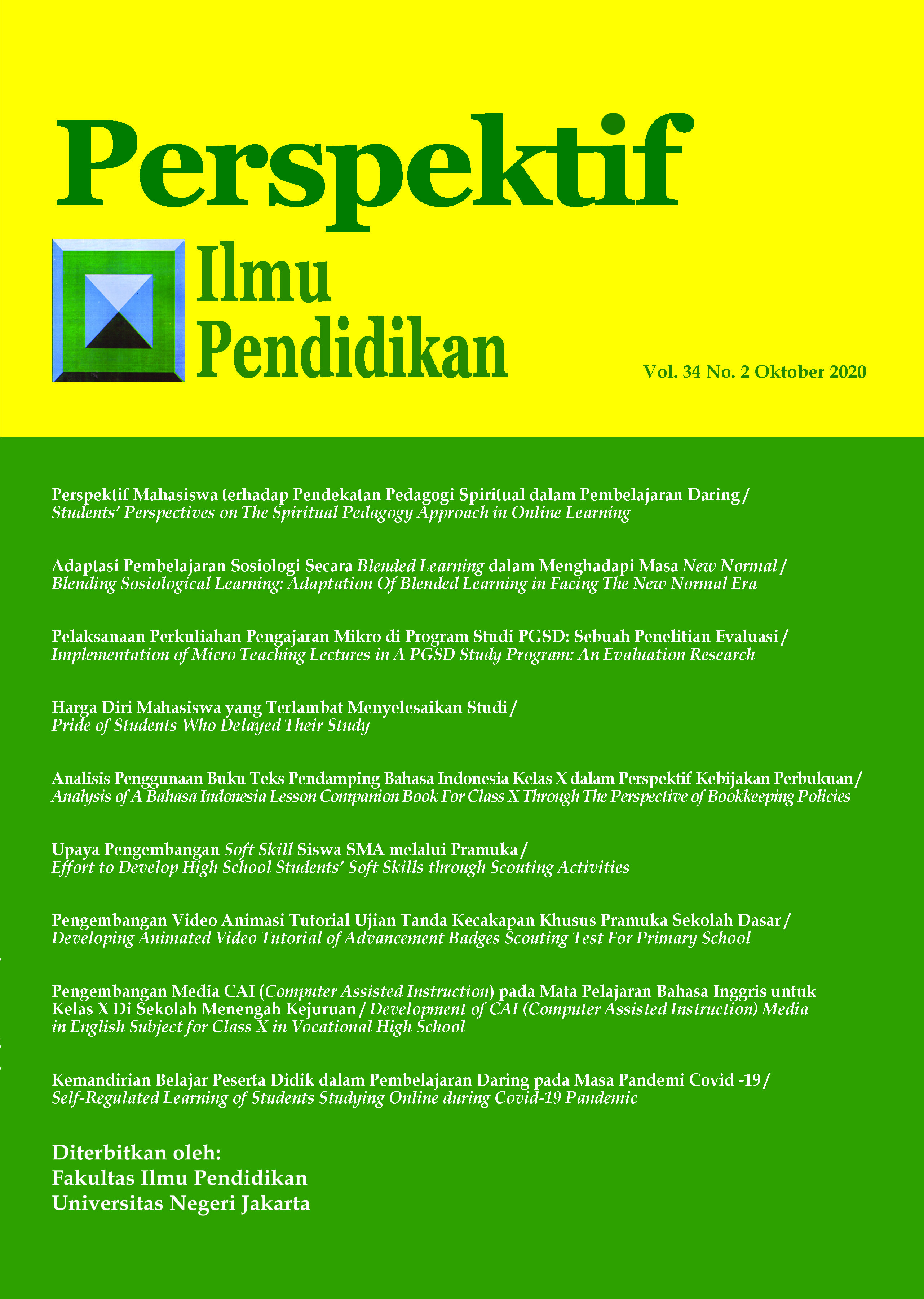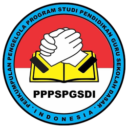UPAYA PENGEMBANGAN SOFT SKILL SISWA SMA MELALUI PRAMUKA
EFFORT TO DEVELOP HIGH SCHOOL STUDENTS’ SOFT SKILLS THROUGH SCOUTING ACTIVITIES
DOI:
https://doi.org/10.21009/PIP.342.6Keywords:
pengembangan, pramuka, soft skill, struktural fungsionalAbstract
Penelitian ini mengkaji upaya pengembangan soft skill siswa SMA melalui kegiatan pramuka. Penelitian ini merupakan penelitian deskriptif kualitatif yang menggunakan teori fungsionalisme struktural dari Talcott Parsons dengan sistem AGIL, yaitu Adaptation, Goal Attainment, Integration, dan Latency sebagai dasar analisis data. Partisipan penelitian adalah 24 siswa dan 1 pembina pramuka di sebuah SMA Negeri di Kabupaten Karanganyar, Jawa Tengah. Data dikumpulkan melalui observasi, wawancara, dan dokumentasi. Hasil penelitian menunjukkan bahwa kegiatan pramuka dapat membantu mengembangkan soft skill siswa terutama kemampuan sosial dan kemampuan personal. Kemampuan sosial terdiri dari communication skill, relationship building, dan team work, sedangkan kemampuan personal terdiri dari time management, leadership skill, dan transforming character (percaya diri, tanggung jawab, mandiri, kreatif, cinta alam, dan berjiwa sosial). Kedua kemampuan soft skill dikembangkan melalui partisipasi siswa dalam kegiatan Pramuka dan keanggotaan siswa sebagai Dewan Ambalan Pramuka.
This study examines efforts to develop soft skills for high school students through scouting activities. This research is a qualitative descriptive study that uses Talcott Parsons’ structural functionalism theory with the AGIL system, namely Adaptation, Goal Attainment, Integration, and Latency as the basis for data analysis. Research participants were 24 students and one scout coach in a public high school in Kabupaten Karanganyar, Jawa Tengah. Data were collected through observation, interviews, and documentation. The results showed that scouting activities could help develop students' soft skills, especially social skills and personal abilities. Social skills consist of communication skills, relationship building, and team work, while personal abilities consist of time management, leadership skills, and transforming character (self-confidence, responsibility, independence, creativity, love of nature, and social spirit). Both soft skill abilities are developed through student participation in scouting activities and student membership as Scouting Council.
Downloads
Published
How to Cite
Issue
Section
License
Authors who publish with this Journal agree to the following terms:
- Author retain copyright and grant the journal right of first publication with the work simultaneously licensed under a creative commons attribution licensethat allow others to share the work within an acknowledgement of the work’s authorship and initial publication of this journal.
- Authors are able to enter into separate, additional contractual arrangementfor the non-exclusive distribution of the journal’s published version of the work (e.g. acknowledgement of its initial publication in this journal).
- Authors are permitted and encouraged to post their work online(e.g. in institutional repositories or on their websites) prior to and during the submission process, as it can lead to productive exchanges, as well as earlier and greater citation of published works.
-
Users/public use of this website will be licensed to CC BY-NC-SA Creative Commons Attribution-NonCommercial-ShareAlike 4.0 International License












